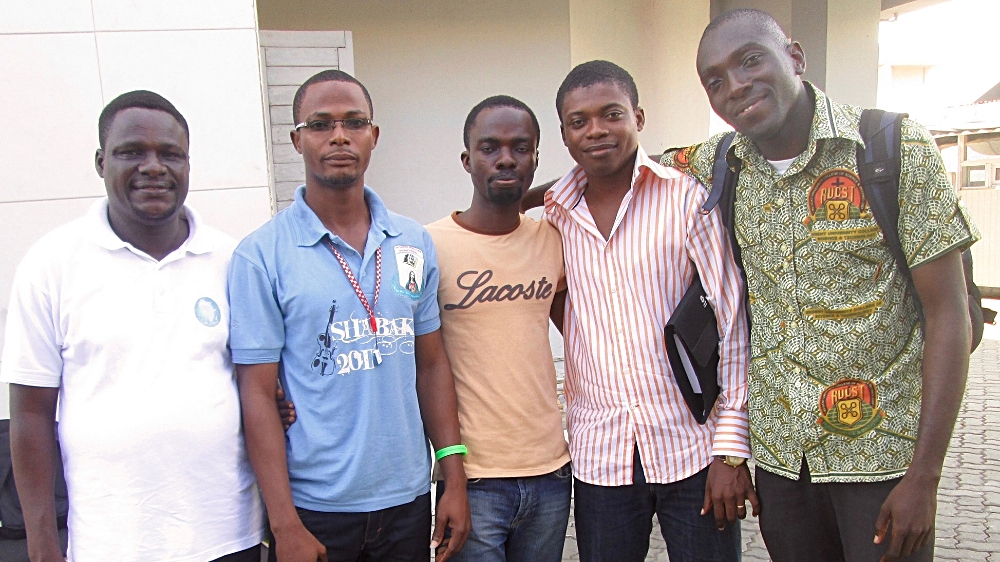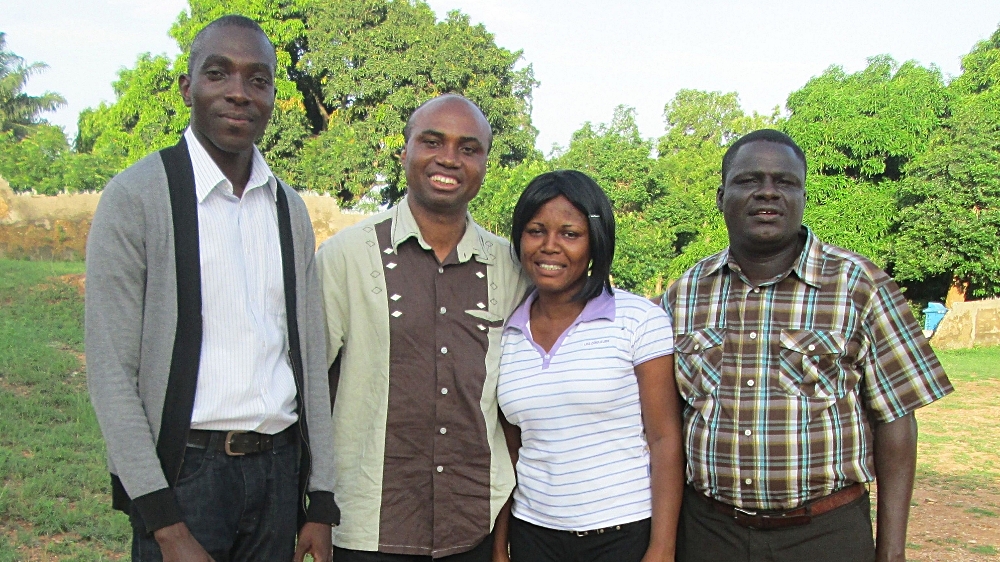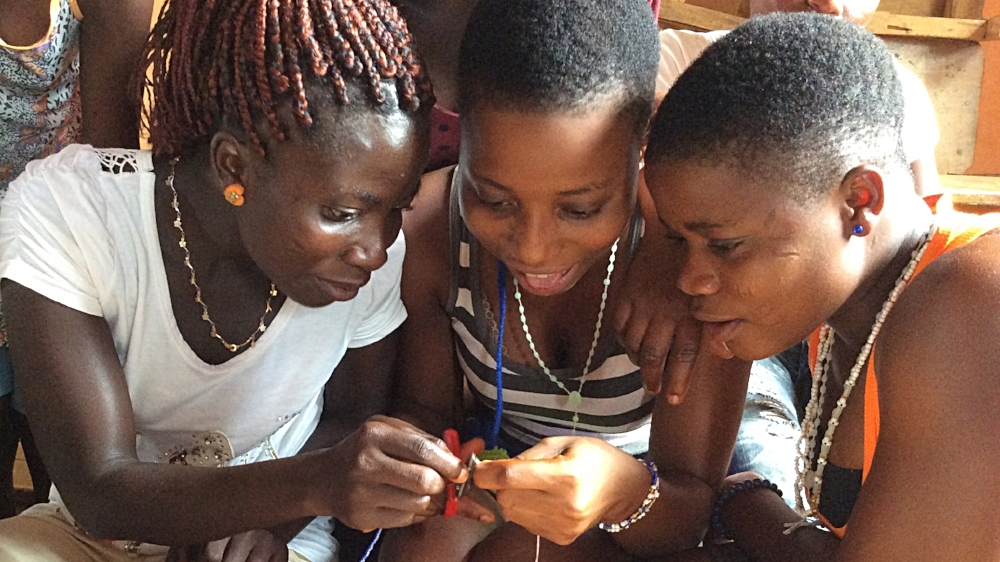Crisis at the forefront of leadership in geopolitics demands a steady personality, a dynamic leadership style, and authenticity to deal with intelligent people in the workplace more than at any other time in history. Human ingenuity is resulting in growth and disruption in nearly every sector. Yet, many skilled leaders, scarred by emotional brokenness, are blind to how the baggage they carry affects the way they lead.
For the 'N' in my leadership alphabet, I focus on the disposition, execution, and qualities that make leaders thrive. Here are five words to ponder.
'N' is for Novity
Change at the speed of light is the new normal. We are continually looking for ways to improve human living conditions. Business-as-usual is no longer sustainable in our day. For some people, this fact of life generates anxiety, if not insecurity. Yet, it uncovers an immense opportunity for those who are poised to embrace the 'new' as conduits of innovation.
The new must build on what already works. Innovation must be an engine for increased productivity and personal satisfaction. In the words of Winston Churchill, "do not let spacious plans for a new world divert your energies from saving what is left of the old." And I will add, do not let security with the status quo highjack your readiness to generate new ideas.
The leader who embraces novity is an agent of change, a forward thinker, and one who embraces diversity as a matter of necessity – be it with race, gender, culture, physical disability, etc. Novity ultimately leads to an evergreen space of ideas and refreshing working conditions. Leaders who think mostly about the present are interested in self-preservation, but leaders who have foresight take a seed and nurse it so that it will ultimately grow into a tree that bears much fruit in many seasons. Conversely, leaders who believe it is all about them tend to resist change and instead roast any new seed for a quick meal. These leaders are often left behind with no good legacy. The crux of the matter is this: embrace the new without destroying whatever is good from the old. Novity: let's innovate!
'N' is for Natural
Cable television and other forms of media are making their mark on perceptions of leadership that are not necessarily helpful. Private, public, and even education sectors are gradually ceding integrity in favor of popular demands, preferring shiny wrappings over rich substance. However, leadership that has a lasting impact is marked by authenticity, freshness, and simplicity. To be a natural leader is to embrace your authentic self and your story as a whole. To be unafraid to own up to your checkered past, struggles, and ambitions to make a difference. In contrast, others try to mask their real character and challenges, hoping that nobody, in this information age, finds out. Gone are the days when 'fake it till you make it' is the mantra.
Natural personalities are genuine, gracious, and gratifying to work with. You express your values in what you choose to make known and what you choose to hide. Leaders who are natural connect well with people and have no fear of being vulnerable. Be yourself! Leaders who are known for their credibility and human touch build trust.
Yes, it takes courage to be yourself. Most people fake it, lie, and live under an illusion for one main reason – fear. Fear of being exposed, fear of rejection, fear of the new, fear of others. Do you know most leaders would not trust a chameleon in their space to remain the same color, yet believe that if they perform like chameleons, they could engender trust?
'N' is for Negotiation
What marks global leadership today is a diversity of thoughts, people, and cultures. Embodied cultural competence, a charitable spirit, and a readiness to learn are the bedrock for success in leadership today. Mindfulness must replace careless attitudes toward the 'other' to navigate and negotiate win-win outcomes. Self-development in the areas of mindfulness, cultural intelligence, and emotional intelligence will maximize effectiveness in frequent cross-cultural interactions and negotiations in both digital and physical spaces.
Interpersonal communication is quickly rising to the top of the list of qualities that leaders need to make things happen. Today, any organization with more than twenty associates comprise elements of diversity requiring tactful negotiation. Norms, values, and codes of decency vary from country to country. To navigate and negotiate standards, the new normal requires mutual respect, flexibility, and self-awareness. Leaders set the tone and regulate the tempo in their workplace. When leaders signal to workers that they are not valued, the natural response is that those associates will find no ground to invest for the long term.
We all need to work on ourselves. There is almost always a personal story behind a leader's ability or inability to treat people with respect. Good negotiators tend to assume the posture of mutual respect. They understand that compromise can be a virtue.
'N' is for Negotiosity
Negotiosity is the idea that one needs to keep busy for busyness’ sake. Somehow, busyness has become attractive, noble, and even honorable in some areas. My early experience as a New Yorker brought me face to face with a culture of busybodies. Busy minus productivity was still cool; I simply could not get it. Good leaders are responsible stewards of time and take an interest in the overall wellbeing of their associates – spiritually, physically, socially, and mentally.
The measure of productivity is not determined by how long or how hard people work, but how productive people are within working hours. Recent research in Japan showed the world that a four-day workweek increased productivity outcomes. The truth be told, some use busyness as a coping or escaping mechanism from personal and family struggles. Encouraging people to take care of their physical, mental, and spiritual health increases morale and inspires maximum input. When leaders encourage team members to cater to their personhood, the staff feels treated like persons and not mere-production engines, and therefore rise to more significant achievements in the workplace. We must see negotiosity as a symptom of an unhealthy workforce or a toxic workplace. Why is it that many people who claim to be so busy are also so unhealthy? Think of yourself as a leader of people.
'N' is for Narcissism
A central pillar in American exceptionalism is individualism. Conversely, collectivist cultures frown on individualism and mischaracterize it as selfishness, pomposity, and even arrogance. While individualism tends to produce more narcissistic personalities, it would be a mistake to surmise that narcissism is only present in individualistic cultures and absent in collectivist cultures. The fact is, narcissism is a problem in human society. History teaches that great leaders resist self-centeredness and self-absorption and strive to understand, empathize, and serve people. Gone are the days when leaders could get away with a know-it-all, all-powerful, and 'I can do whatever I want' in the spirit of 'gods' at the prominent corner office vying for unquestionable loyalty.
Today's associates find their voice and derive significance from conditions that allow them to contribute to collective success. They have a low level of tolerance towards leadership that is marked by self-aggrandizement and intimidation. The operative prefix in the modern workplace is 'inter' – intercultural, interactive, intergenerational, and international. Being a maverick is no longer a virtue in today's leadership. A leader must learn to work with people.
The reflection on the 'N' in the alphabet calls for self-assessment, personal development, and intentionality in a leader's desire to engage people to flourish and be productive in the workplace. Self-aware leaders tend to do well in dealing with people. We are in an exciting season for leaders to make new things happen and unleash highly qualified people who enjoy giving out their best. With a new mindset and love for people, leaders will do just fine in the continual journey of personal growth. Are you ready to engage with the 'N'?






